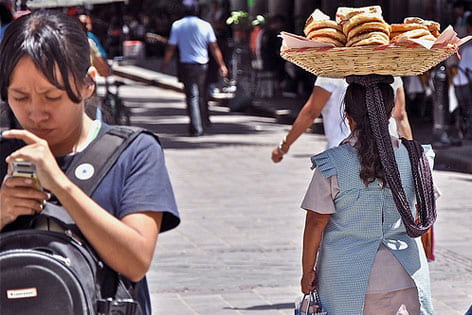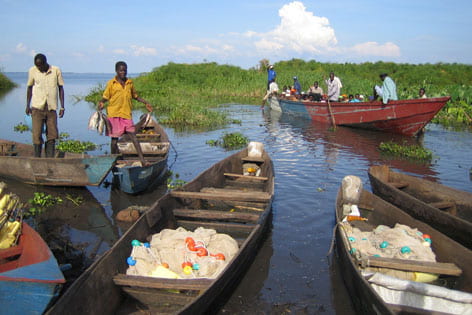Money management among the poor
UCI funds research on financial practices in developing countries.
In the developing world, financial practices can be as rudimentary as using cattle for currency or as technologically advanced as transferring money via cell phone.
To help researchers around the globe learn more about how the world’s poorest people spend, store and save money, UC Irvine is awarding grants totaling $230,000.
The Institute for Money, Technology & Financial Inclusion has selected 17 projects in 14 countries on such topics as how indigenous craftswomen in Mexico use the Internet to connect with lenders and how rickshaw pullers in India deal with the risk of robbery.
Bill Maurer, UCI anthropology chair and institute director, says the research will help policymakers, scholars, financial firms, banks, mobile phone network providers and information technology companies develop better services and products for the poor abroad and in the U.S.
“These projects will help us understand how the world’s poor manage their money and which banking models work best,” Maurer says. “Convenient, innovative and inexpensive financial services can change lives in the developing world.”
Funded projects include:
- Money and religion in Nigeria: The Igbo tribe of Nigeria often consults oracles for advice and prophecies and pays priests and priestesses for their services. Researchers will study whether these religious figures could serve as local bankers and provide credit and savings systems.
- Rickshaw pullers in India: Rickshaws often are the only form of public transportation in the developing world. Researchers will interview rickshaw pullers in India about their financial habits and how they avoid robbery.
- Nomads and modern money: Monthly wages in the Altai Republic of Russia average around $100, and many people still use livestock for currency. But villagers are starting to use mobile phones to activate credit cards. The study will examine how technology is changing the concept of money in this remote region.
- Micro loans in Chiapas: Nonprofit kiva.org utilizes the Internet to provide small business loans to women in Chiapas, Mexico. Researchers will explore how these women are using online loans to expand their food preparation and arts and crafts businesses.
Housed in UCI’s School of Social Sciences, the Institute for Money, Technology & Financial Inclusion was created in 2008 with a three-year, $1.7 million grant from the Bill & Melinda Gates Foundation. The institute now is accepting a second round of research proposals on the use of money among the world’s poor. Guidelines, deadlines and further details are available at www.imtfi.uci.edu/imtfi_cfp2009.

